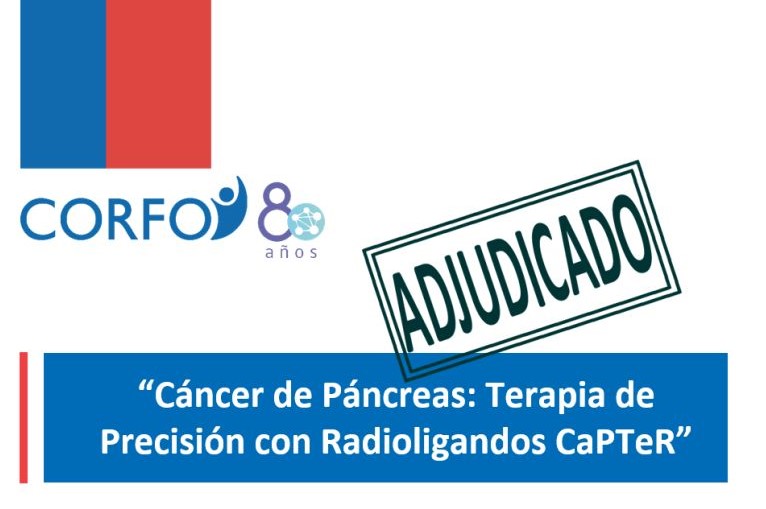CORFO grants Merken Biotech for preclinical radiopharmacy.

The Chilean Economic Development Agency (CORFO) has awarded to Merken Biotech with the CORFO Innova Alta Tecnología 2024 grant (24IAT-262307) to develop the “CaPTeR technology” for the treatment of advanced pancreatic cancer. The awarded grant will be led by Sebastian Belmar Willatt and will allow to Merken Biotech to expand its R&D capabilities in the area of preclinical radiopharmacy and complete the development of CaPTeR radioligands and advance to the clinical stage in collaboration with the prestigious private center leader in nuclear medicine and PET/CT, PositronMed.
Cancer remains a widespread disease with high mortality rates, primarily attributed to the lack of early diagnosis and the limited efficacy of current treatments. Pancreatic ductal adenocarcinoma (PDAC) exemplifies this unmet need. Unfortunately, therapies in the last 40 years have increased the 5-year life expectancy of PDAC patients only by 12%. In 2022 alone PDAC claimed the lives of 38,319 people in Latin America and 467,000 worldwide (Globacan).
The lack of effective treatments results in a challenging scenario:
i) over 50% of patients are diagnosed at metastatic stages with a low survival rate of nearly 2% at this stage
ii) 80-90% of diagnosed patients are ineligible for surgery and their 5-year mortality rate is 95%
iii) the overall five-year survival rate for pancreatic cancer is approximately 5-7%
iv) only 10% to 20% are eligible for surgery, with high recurrence rates and survival of only 10-20% at 5 years.
In recent decades, molecular imaging using Positron Emission Tomography combined with Computer Tomography (PET/CT) has become indispensable in cancer, providing precise diagnoses, accurate staging, follow-up monitoring, patient selection, therapy planning and therapeutic outcome monitoring. The principle of molecular imaging is the specific binding of radiolabeled ligands to overexpressed target proteins in tumor cells. Once injected into the body, these radioligands travel through the bloodstream and selectively bind to cells expressing a particular target protein or biomarker. For imaging, the radioactive isotope conjugated to the ligand should emit gamma rays or positrons (eg. Gallium-68, Fluorine-18, Technetium-99m), which are detected by PET or SPECT scanners, allowing visualization of the ligand’s binding location, thus revealing the disease’s presence and extent with high sensitivity and specificity. Importantly, conjugation of the same ligand with radioactive isotopes that emits beta or alpha particles (eg. Lutetium-177, Yttrium-90, Actinium-225, Lead-212) allows selective delivery of ionizing radiation doses directly to the tumor cells, sparing healthy tissue – concept known as Theranostics.
In Merken Biotech, we are deeply pleased and proud of the exceptional work that our multidisciplinary team at Merken Biotech has carried out over the past few years. We are very grateful to our staff, collaborators and especially to CORFO, its Innovation Management and executives, for the great reception towards our project and all the feedback given during the application process.
Check this news in our Linkedin’s website
